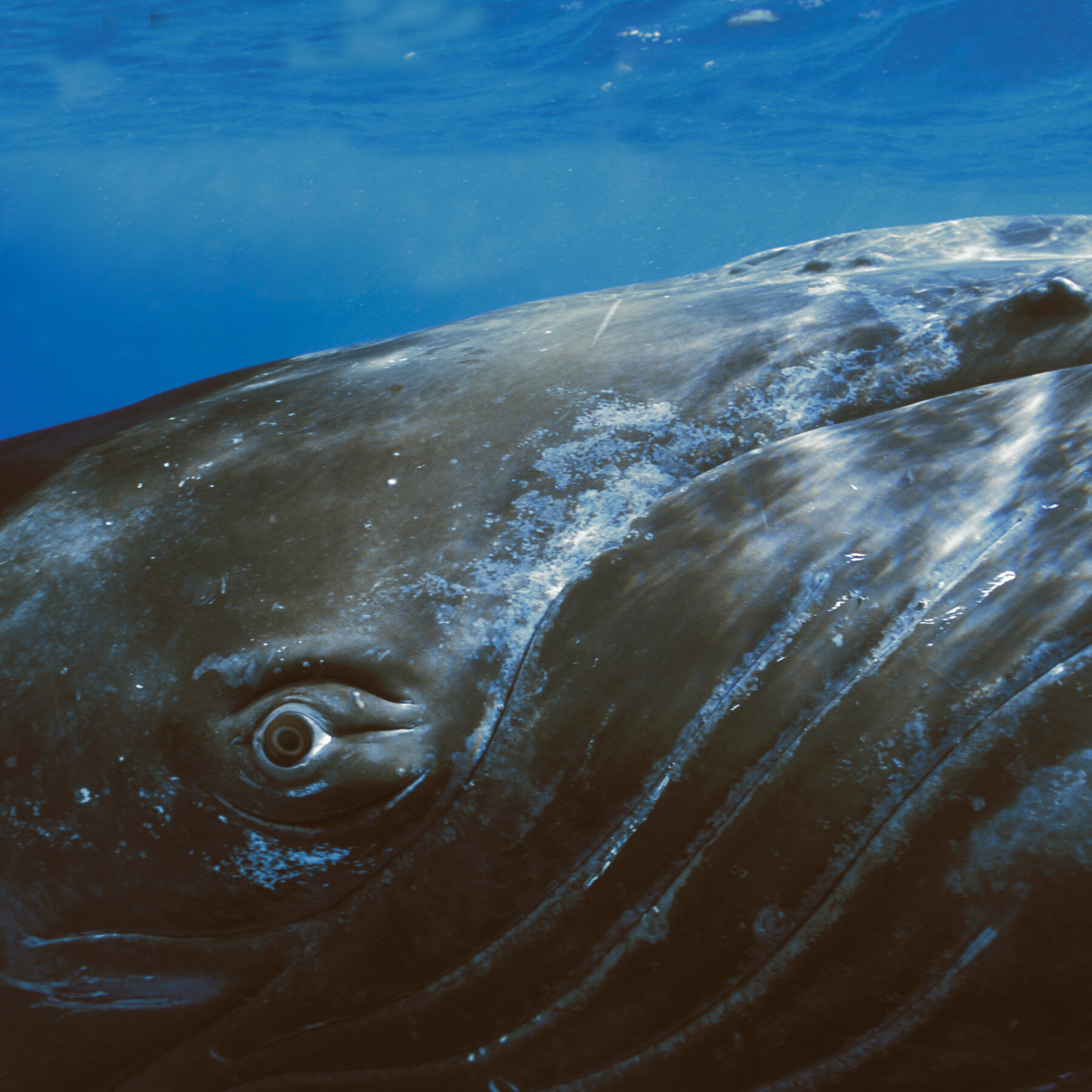There is an article about Sperm Whales in the New York Times that talks about their modes of communication. They seem to have an elaborate language we don’t understand yet.
The sperm whale is the largest of the toothed whales and the largest predator on earth. Mature males average 16 metres (52 ft) in length, with some reaching more than 20 metres. The head represents up to one-third of the animal’s length. They can dive down to 2,250 metres (7,382 ft). The sperm whale makes clicking sounds, which is a form of echolocation as well as communication. Sperm whales’ brains are the largest ever known, around six times the size of humans’. They have an oversize neocortex and a profusion of highly developed neurons called spindle cells that, in humans, govern things like emotional suffering, compassion and speech. Sperm whales can live for more than 60 years.
The sperm whale can be found anywhere in the open ocean. The name comes from a liquid wax in the head of the whale, called “spermaceti,” used in lubricants, oil lamps, and candles. The species was hunted from the early eighteenth century through the late 20th; currently there exists a whale hunting moratorium. Females and young males live together in groups, while mature males live solitary lives outside of the mating season. The females cooperate to protect and nurse their young. Females give birth every four to twenty years, and care for the calves for more than a decade. A mature sperm whale has few natural predators. Calves and weakened adults are hunted and eaten by pods of orcas.
The author of the article goes diving with the whales over a period of several months, and he realizes that they are aware and intelligent:
The whales could have easily eaten us or pulped us with their 15-foot-wide flukes. But they didn’t. As I stared into the tennis-ball-size eyes of a sperm whale mother and her calf, I immediately recognized that these were extraordinarily intelligent, fully conscious beings. I believe the whales saw the same in us.
This wasn’t a scientific epiphany but an emotional one. That still means something. You can’t share that connection on the deck of a boat. You’ve got to get in the water.
In the past 150 years, humans have killed off about 70 percent of the sperm whale population. Around 360,000 remain. That number is expected to decline strongly as the ocean warms and acidifies.

Leave a Reply